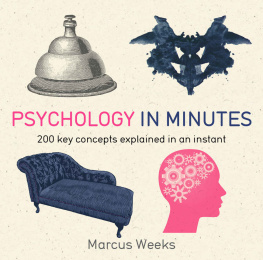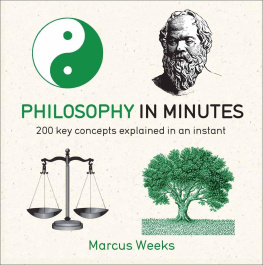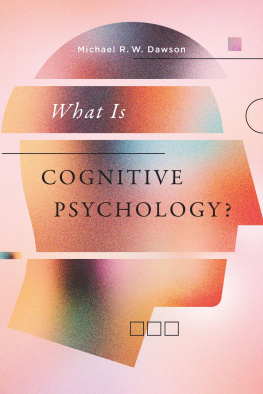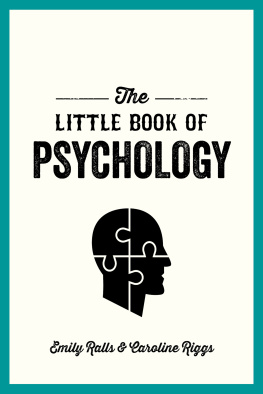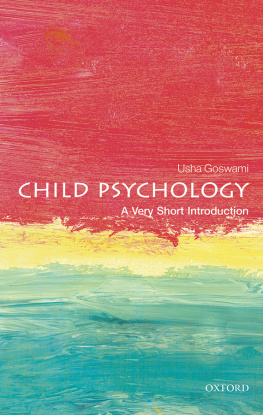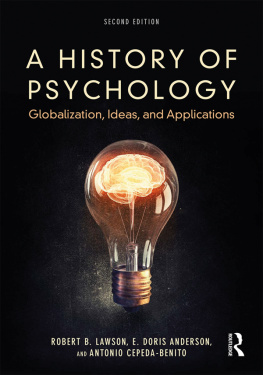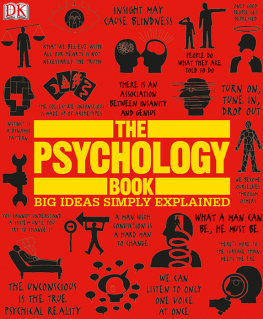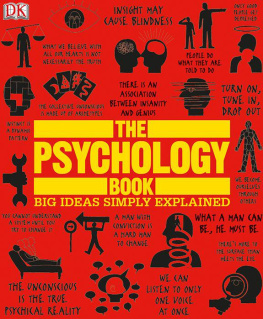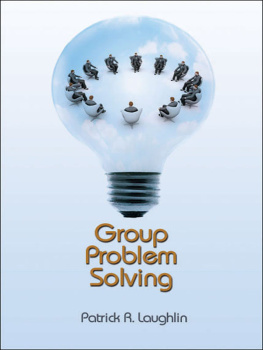Psychology in Minutes
Marcus Weeks

Contents


New York London
Copyright 2015 by Marcus Weeks
All rights reserved. No part of this book may be reproduced in any form or by any electronic or mechanical means, including information storage and retrieval systems, without permission in writing from the publisher, except by reviewers, who may quote brief passages in a review. Scanning, uploading, and electronic distribution of this book or the facilitation of the same without the permission of the publisher is prohibited.
Please purchase only authorized electronic editions, and do not participate in or encourage electronic piracy of copyrighted materials. Your support of the authors rights is appreciated.
Any member of educational institutions wishing to photocopy part or all of the work for classroom use or anthology should send inquiries to .
e-ISBN 978-1-62365-484-9
Distributed in the United States and Canada by
Hachette Book Group
1290 Avenue of the Americas
New York, NY 10104
www.quercus.com

Introduction
The story of psychology begins in Classical Greece. Plato and Aristotle argued over the existence of immortal souls, as well as the human capacity to experience, perceive and think about things. Indeed, the word psychology itself derives from the ancient Greek psyche, meaning both soul and mind. The study of the psyche remained a philosophical pursuit until comparatively recently. The first references to psychology as a distinct subject appear in the 17th century Culpepers Complete Herbal defined the discipline as the knowledge of the soul. However, Curzons 1712 description got closer to our modern conception of the subject, Psychology examines the constitution of the Mind of Man, its Faculties and Passions.
Today, psychology is considered to be the scientific study of mind and behaviour. Its roots may be in philosophy, but it encompasses elements of physiology, medicine and the social sciences. Psychology emerged as a science in its own right towards the end of the 19th century, alongside the emerging fields of neuroscience and sociology with which it has more than a passing connection.
The human mind, and human behaviour, are complex and unpredictable. Different approaches to the study of psychology emerged in the 20th century, and it became obvious that the study of mind and behaviour covered a vast and varied field. Some psychologists approached the subject as they would a natural science, observing and experimenting in laboratories. Others saw it more as a clinical science, which could produce benefits for those with disorders of the mind or problems in behaviour. Different branches also emerged, studying the behaviour of people in social groups, the ways in which our minds develop as we grow up, and even the things that make us unique individuals.
Psychology today covers all these areas and more it examines the ways our minds work and how we act and react in the world around us. Like any science, as well as giving us an insight into the workings of our minds, psychology has provided a multitude of applications, from clinical therapy through to social policy, management and advertising. It is a vast subject and one that never fails to fascinate.
Precursors of psychology
The natural sciences (astronomy, physics, chemistry, biology and earth sciences) evolved from philosophical speculation about the nature of the world, but it wasnt until the 19th century that a scientific study of the way we think and behave emerged. One of the reasons for this was that, since we cannot have direct access to what is going on in other peoples minds, a philosophy of the mind tended to be a matter of introspection and lacked the objectivity of a true science.
Furthermore, the strictly physical study of the brain although objectively scientific told us little about how we think and behave. Some physiologists, in Germany in particular, turned their attention to the study of mental processes, and at much the same time philosophers (especially in the USA), adopted a more rigorously scientific approach to the philosophy of the mind. From these two different approaches, the new science of psychology emerged as a distinct scientific discipline, bridging the gap between philosophy and physiology.

Mind and brain
In many cultures around the world, there is the belief that humans have a soul (often immortal) that exists independently of the body. For Greek philosophers, the soul, or psyche, was also seen as the seat of our ability to reason what we would call the mind today. While Aristotle and his followers saw body and soul as inseparable, Plato believed that the psyche belonged in the eternal world of ideas, separate from the material world our bodies inhabit.
Later philosophers, notably the Islamic scholar Avicenna and the great mathematician and philosopher Ren Descartes, proposed that the immaterial mind and material body are separate entities. This mindbody dualism was challenged by Gilbert Ryle in 1949, who dismissed the idea of an independently existing soul or mind as seeing a ghost in the machine. More recently, computer technology has presented a useful analogy: brain and mind can be seen in terms of hardware and software, which are distinct but interdependent.

Neuroscience
Around the middle of the 19th century, medical science was turning its attention to disorders of the central nervous system. Early neurologists, including Jean-Martin Charcot, examined and described conditions, such as multiple sclerosis, prompting research into the physiology of the nervous system. A turning point came with the staining technique devised by Camillo Golgi, which made it possible to examine individual cells under a microscope.
Santiago Ramn y Cajal, the founder of modern neuroscience, used this technique to identify and categorize the nerve cells of the nervous system and brain (now called neurons). Later research showed that neurons communicate with one another via electrochemical signals, passing information from the sensory organs to the brain. It also became clear that electrochemical activity between neurons within the brain is associated with mental processes, leading to a distinctly physiological approach to psychology.

Some of the earliest images of nerve cells in the brain were drawn by Spanish neurologist Santiago Ramn y Cajal.
Hypnosis
).

Medical conditions
Throughout history, mental disorders have been treated with suspicion and even fear. Severe conditions were often attributed to some form of possession, while disorders such as melancholy were thought to be an imbalance of humours, and hysteria caused by problems of the uterus. For a long time, these conditions were considered incurable. Sufferers were branded insane and locked in institutions, such as the notorious Bedlam.

